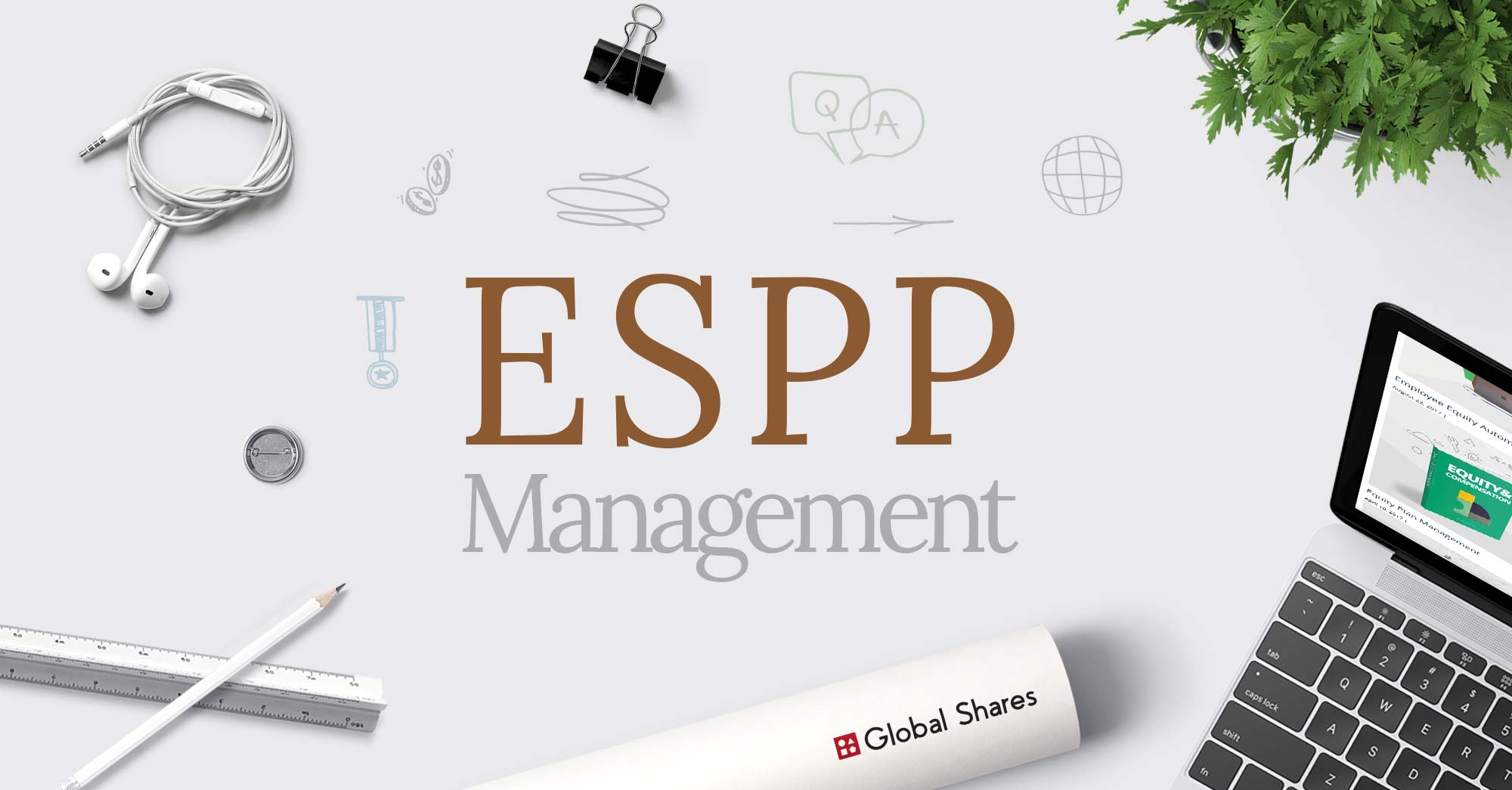Employee ownership is an effective and popular tool to help companies with recruitment and retention. Offering employee equity can far exceed the financial rewards of just a salary.
Equity compensation management is to determine the success of employee ownership. But from launch to end, it requires a lot more juggling. So, how to handle equity plan management to ensure that company success starts from within?
Here, we break the entire concept down into a number of events for discussion:
1. Gather employee data
You’re going to need both your Human Resources and your Accounting/Payroll departments for this step. (And all the other steps.)
Your HR is vital from the start. Besides basic personal details, you need to know how long each employee has worked for the company and what their contract looks like, in order to determine who’s eligible and how much equity compensation they receive.
And not just at the beginning of the plan. Different jurisdictions have different tax systems – and if your employees change their addresses, it could change their tax responsibilities.
2. Create all equity awards and plans
It’s usual for a company to have multiple award forms and plan types as employee motivation may differ from junior employees to executives. Stock plan rules for different positions may also be different.
So, stock plan administrators need to make sure vesting schedules, exercise windows, termination rules, expiration dates, contribution limitations and other plan rules are correctly implemented for each plan and each individual grouping.
Our equity management software can handle virtually any plan or award type, all the way through the award life cycle from award (or enrolment), through vesting (or purchase), and on to exercise or other disposition.
3. Manage participants & leavers
Contributions to a share plan are often made via employees’ salaries. Your payroll department needs to coordinate payroll deductions for existing participants.
In addition, stock plan administrators are required to constantly stay on top of stock plan changes arising from ongoing events such as issuing options, plan participation status, stock vesting/exercising, and categorizing multiple classes of shareholders.
Also, those who are leaving should be restricted from trading at certain points.
4. Respect jurisdiction – tax, regulatory and legal implications
When seeing employee ownership works well in one jurisdiction, you might want to globalize your equity compensation plan to maximize its benefits.
Understanding the regions you want to expand to, and the varying tax laws, and how they apply to your employees is crucial. A plan that works great for your Tokyo office might not work for the employees in your Italian branch.
There are different laws around employment and compensation in different jurisdictions as well. These need to be considered well in advance of company expansion.
Contact us with extensive local knowledge to ensure you are in line with local practices.
5. Reporting
Equity compensation management comes with a lot of reporting. Like, a lot. There are the reports that come from transactions, contributions, expenses, taxes, payroll, and many, many more. Every single one of these reports needs to be comprehensive, accurate, and – most importantly – prepared in a timely manner.
Our comprehensive and integrated IFRS2 and US GAAP financial reporting facilities allow you to build any customized reports in multiple formats with only a few clicks while staying compliant.
6. Compliance
Compliance is one of the major components of stock plan management. It encompasses all legal, contractual and regulatory obligations. Your legal and regulatory teams should regularly review and monitor all these issues for each jurisdiction.
Across Europe, GDPR is quite the buzzword these days as it dramatically changed the face of many businesses in Europe. All employee data that you’re handling – the numerous tax documents, contract notes, financial reporting, etc. – need to be handled in a GDPR-compliant manner.
The penalties for breaching GDPR, even incidentally, can be incredibly severe. A breach of GDPR, by not dedicating enough time to how you manage your equity compensation data, could be the worst business decision you ever make.
7. Communication
There are two types of communication – Participant communication and inter-department communication.
Participant communication:
This is a big part of managing your equity compensation plan. It’s all well and good to establish a plan – but you need your employees to join. You need to make sure you communicate the benefits of the plan effectively and show them that joining the plan is easy.
Refer to our guide to communicating an equity compensation plan to employees.
Inter-department communications:
This is crucial. Every department needs to be kept up to date on any changes that occur, within the company or externally, that could affect the plan. Your payroll team needs to know if there are any new hires or policies from HR. Your HR needs to know if there are any jurisdiction updates from legal. And so on. Here’s one example.
The withholding rate is a vital part of any equity compensation plan. It’s not as simple as payroll deducting a contribution each month. There are certain timelines and guidelines that need to be adhered to, and these can change. If the changes are not communicated appropriately, it could lead to disaster.
Can you handle equity compensation management?
Well.. There’re a lot of logistics that need to be hammered into place, and the stakes are quite high. We get it. These things can be daunting, but there’s an easy fix. Have somebody else handle the whole thing for you.
Having an outsourced provider and working off a digital platform means that companies save time, and money and de-risk the management of their share plan.
At J.P Morgan Workplace, we provide solutions to equity plan management. We don’t only provide the equity administration software, but also a team of equity plan specialists and a corporate client manager to guide you through from gathering all data and administration to compliance and reporting. Our 24/5 multi-lingual support for participants is also available through a dedicated support desk.
Contact us today to find out how we can help you launch your plan.
This publication contains general information only and J.P. Morgan Workplace Solutions is not, through this article, issuing any advice, be it legal, financial, tax-related, business-related, professional or other. J.P. Morgan Workplace Solutions’ Insights is not a substitute for professional advice and should not be used as such. J.P. Morgan Workplace Solutions does not assume any liability for reliance on the information provided herein.



